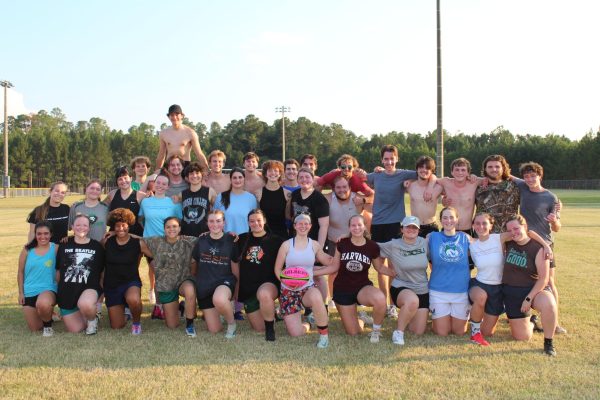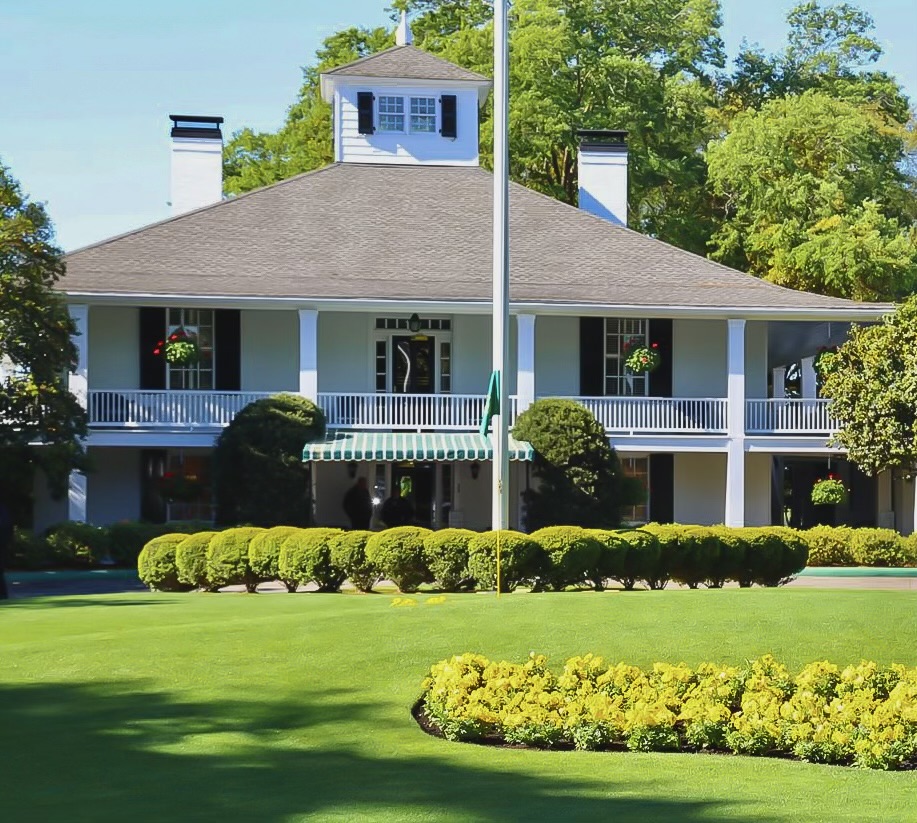
Georgia College & State University offers a diverse range of club sports, and rugby stands out as one of the most popular on campus. Both men and women have their own teams.
However, many students are unfamiliar with the sport, which can deter them from participating in the club sport. When many think of rugby, they believe it’s a comparable mix between football and soccer; however, to GCSU’s club athletes and fans of the sport, rugby is its very own game with its very own characteristics.
“I think rugby is such a growing sport, especially after the past Summer Olympics,” said Emma Laparde, a senior women’s rugby club athlete. “Especially women’s rugby, we’ve seen a massive increase in numbers. So we’re becoming more popular. When I first joined, I want to say I made the 7th person on the team, and now we have 24 registered players just on the women’s team.”
In basic terms, rugby is a contact sport, typically played with fifteen players on each team at a time, using an oval-shaped ball. The objective of the sport is to score points by carrying or kicking the ball into the opponent’s “in-goal area” to score a try (five points) and kicking it through ‘H’-shaped goal posts for a conversion (two points) or penalty kick (three points).
“I do believe Rugby is underrepresented,” said Matthew Kuipers, a sophomore men’s club rugby athlete. “Many people would be interested in playing rugby if they knew what the game was and that we had a team.”
Rugby emphasizes physical contact, as tackles attempt to restrict forward movement. However, one of the well-known parts of rugby is the “scrums,” which occur as a way to restart the movement of the game after a minor infringement, such as a forward pass.
When a scrum is necessary, forwards from either team lock arms together. An opposing player then drops the ball into the scrum, and each team attempts to use their feet to advance the ball to their own team’s position behind them.
“I think people’s initial impression of rugby is football without any protective padding,” said Ethan Mattace, a sophomore on the men’s club rugby team. “When in reality there’s a lot more nuance to it, and the more you play, the more you find the communal respect we have for each other and our safety.”
Rugby has brought many memories to each of its players, especially to its team presidents.
“What I think back to the most was my first practice,” said Blake Dickey, a junior men’s club rugby athlete and the men’s club’s team president. “It stuck with me, I showed up and they really made me feel like I was a part of something. I felt like a brother to these people immediately, and that was what really made me fall in love with the club.”
Both team presidents show how much they care about the sports they lead; however, in their favorite memories, they show how much of a family each of their respective teams provides for each of them.
“I never played a team sport before rugby,” said Sidney Joubert, a senior women’s rugby club athlete and the women’s club’s team president. “When I got to college, I wanted to find my group, and I was able to do that by joining the people playing women’s rugby.”
Newer athletes can quickly create new memories, either in their first year or sometimes in their first game altogether.
“My favorite memory was definitely our first game that we played,” said Ellie Hopkins, a sophomore women’s club rugby athlete. “It was my first game ever stepping on the pitch. I had only had about four practices under my belt. I had no idea what was going on. It was towards the very end, we were all over at the scoreline. We called the try line, and the ball got passed to me, and I just fell over and scored. It was my first try. And the whole team erupted and I kind of blacked out.”
While the sport is all about competitiveness, and on the field you are opponents, the people you meet on other teams can quickly become a part of your circle as well.
“My favorite memories are when the game against another team is over,” said Ethan Yancey, a sophomore men’s club rugby athlete. “There’s the guy you have been battling against for 90 minutes, the next moment you are hanging out and having a good time.”
Rugby at GCSU is constantly growing, and from the looks of it, joining the sport can provide a sense of belonging to a second family.
“We take new players at any time in the semester, either fall or spring,” Laparde said. “We’ve had people join towards the end of one semester and then come back for the next because they like it so much. It’s really no commitment. If you do come out to a couple of practices just to see if you like it or not, and if you don’t, that’s okay too, ’cause then we just get new fans on the sidelines.”


